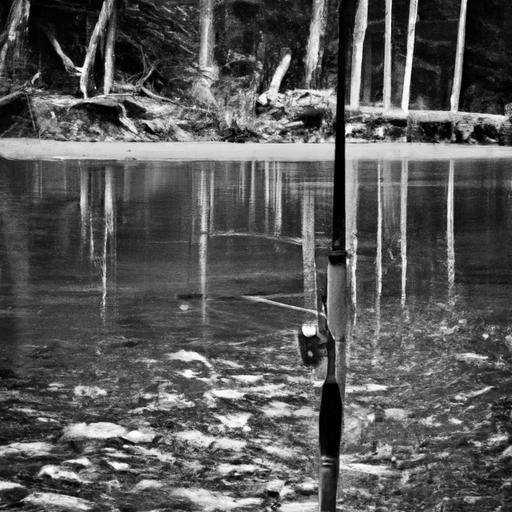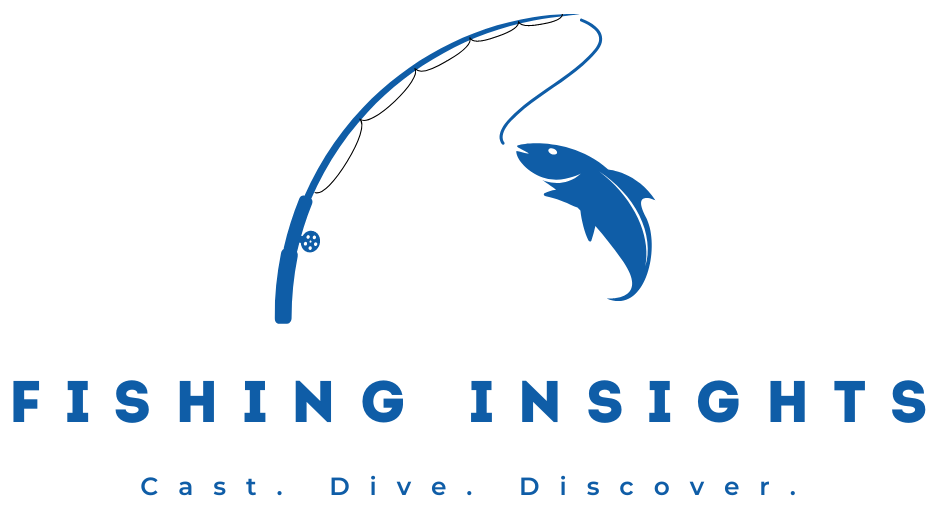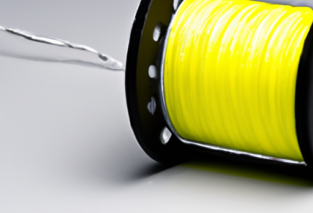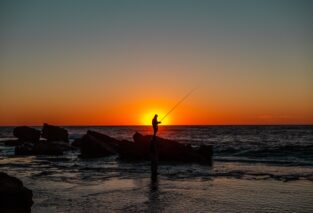Are you a new angler looking to navigate the world of fishing with confidence and respect? Look no further than “Fishing Ethics: A Primer for New Anglers.” This comprehensive guide is designed specifically for beginners, offering valuable insights and tips on how to approach fishing with ethical considerations in mind. From understanding catch limits to practicing proper fish handling techniques, this primer covers it all, ensuring that you can enjoy the sport while also contributing to the conservation and sustainability of our aquatic resources. Get ready to embark on an exciting fishing journey filled with knowledge and respect for nature.

Choosing Sustainable Fishing Practices
Understanding Catch and Release
When it comes to sustainable fishing practices, one of the most important concepts to understand is catch and release. Catch and release is a technique that allows anglers to enjoy the thrill of catching a fish while also ensuring its survival and the longevity of the fish population. The idea is simple – instead of keeping every fish you catch, you release the fish back into the water unharmed. By doing so, you contribute to the conservation of fish populations and maintain the delicate balance of the ecosystem.
Selecting the Right Fishing Gear
Choosing the right fishing gear is essential for practicing sustainable fishing. Opting for gear that is designed to minimize harm to fish and the environment can make a significant difference. For example, using barbless hooks instead of barbed ones makes it easier to release fish without causing unnecessary harm. Additionally, using non-toxic fishing weights and environmentally-friendly fishing lines can help reduce pollution in the water. By carefully selecting your fishing gear, you can minimize your impact on the environment while still enjoying your favorite hobby.
Avoiding Overfishing
Overfishing is a critical issue that poses a threat to fish populations and marine ecosystems. It occurs when more fish are caught than can be naturally replenished, leading to a decline in fish populations and negative consequences for the ecosystem as a whole. To avoid contributing to overfishing, it is important to be mindful of the fish you target and the size of your catch.
Respecting the Environment
Proper Disposal of Fishing Waste
Respecting the environment means properly disposing of any fishing waste you generate while enjoying your time on the water. This includes not leaving any trash behind, such as plastic bags, bottles, or fishing equipment. Always bring a garbage bag with you to collect your waste and dispose of it in designated receptacles when you return to shore. Additionally, properly disposing of fishing lines and nets is crucial to prevent them from becoming hazards to marine life. Remember to cut fishing lines into small pieces before disposing of them to avoid entanglement.
Minimizing Habitat Damage
When fishing, it is important to be mindful of the impact your actions can have on the habitat. Avoid trampling plants, disturbing nesting areas, or damaging underwater structures like coral reefs and rock formations. These habitats are vital for the survival of many species and disrupting them can have long-lasting consequences. By fishing responsibly and being aware of your surroundings, you can make a positive difference in preserving the natural habitats for fish and other aquatic organisms.
Being Mindful of Wildlife
Fish are not the only inhabitants of the water, and it is crucial to be mindful of other wildlife that may be present in the area. Avoid disturbing birds, seals, dolphins, or any other animals you may encounter while fishing. Maintain a safe distance and enjoy the beauty of wildlife from afar. By respecting and appreciating the natural environment and the creatures within it, you can foster a harmonious coexistence between human recreational activities and the wildlife that calls the water home.
Know and Follow Fishing Regulations
Researching Local Fishing Regulations
Before you embark on your fishing adventure, take the time to research and familiarize yourself with the local fishing regulations. Fishing regulations vary by location and freshwater versus saltwater environments, so it is essential to know the specific rules and restrictions that apply to the area where you will be fishing. This includes understanding which species are protected, closed seasons for fishing, and any specific gear restrictions. Staying informed about the regulations ensures that you are fishing legally and responsibly.
Obtaining the Necessary Permits
In addition to researching fishing regulations, you may be required to obtain permits or licenses to legally fish in certain areas. These permits help ensure that fishing activities are properly managed and regulated to protect fish populations and the overall ecosystem. The specific permits needed will depend on factors such as your age, the location you plan to fish in, and the type of fishing you intend to engage in. Be sure to obtain the necessary permits before heading out to avoid any legal issues and contribute to sustainable fishing practices.
Adhering to Size and Bag Limits
Size and bag limits are an integral part of fishing regulations and help prevent overfishing and the depletion of fish populations. Size limits refer to the minimum size a fish must be to legally keep it, while bag limits specify the maximum number of fish of a particular species that an angler can retain in a single day. It is crucial to adhere to these limits and avoid keeping undersized fish or exceeding the bag limit. By following size and bag limits, you contribute to the conservation of fish populations and help ensure the long-term sustainability of your favorite fishing spots.

Promoting Ethical Treatment of Fish
Handling Fish Properly
When you catch a fish, it is essential to handle it with care to minimize stress and injury. Wet your hands before handling the fish to protect its natural slime coating, which helps prevent infections and aids in its overall health. Avoid squeezing or gripping the fish too tightly, as this can cause internal injuries. If you need to remove the hook, use appropriate tools such as needle-nose pliers or de-hookers to minimize harm to the fish. By handling fish properly, you can increase their chances of survival when released back into the water.
Using Appropriate Fishing Techniques
Using appropriate fishing techniques is another way to promote the ethical treatment of fish. Avoid using excessive force when reeling in a fish, as this can cause stress, exhaustion, and potential injury. Instead, utilize a balanced approach that allows the fish to put up a fight while ensuring it has the energy to recover after being released. By using proper fishing techniques, you can enjoy the thrill of the catch while minimizing the impact on the fish and its well-being.
Avoiding Unnecessary Harm
To promote ethical treatment of fish, aim to minimize any harm or injury caused during the fishing process. Avoid using treble hooks, which can cause more damage to a fish compared to single hooks. Consider using barbless hooks, as they are easier to remove and reduce injury to the fish’s mouth. Additionally, avoid dragging the fish onto rough surfaces or exposing them to hot and dry conditions for extended periods. Remember, the goal is to enjoy the experience while ensuring the fish’s well-being and the sustainability of fish populations.
Protecting Fish Populations
Releasing Undersized Fish
One of the most effective ways to protect fish populations is by releasing undersized fish. These young fish have not yet reached reproductive maturity and play a vital role in ensuring the future of fish populations. By releasing undersized fish, you give them the opportunity to grow and contribute to the gene pool, which helps maintain genetic diversity and overall population health. Always check the size limits for the species you are targeting and release any fish that do not meet the minimum requirements.
Avoiding Impact on Breeding Seasons
Breeding seasons are critical periods for fish reproduction, and it is important to avoid disturbing their mating rituals. Different fish species have specific times of the year when they spawn, and interrupting these processes can have significant consequences for population numbers. As a responsible angler, make sure to be aware of the breeding seasons for the species you are targeting and avoid fishing in their spawning grounds during those times. By doing so, you allow fish to reproduce undisturbed and contribute to the long-term sustainability of their population.
Supporting Conservation Efforts
Supporting conservation efforts is another way to protect fish populations and ensure their long-term survival. Many organizations and agencies work tirelessly to monitor fish populations, implement sustainable fishing practices, and protect habitats. Consider becoming a member of these organizations, volunteering your time, or making a donation to support their conservation efforts. By actively participating in conservation initiatives, you can make a tangible impact and contribute to the preservation of fish populations for generations to come.
Promoting Respectful Angler Behavior
Maintaining a Safe Distance from Other Anglers
When fishing, it is important to maintain a safe and respectful distance from other anglers. Crowding or encroaching on someone else’s fishing spot can lead to tension and conflict. Give fellow anglers ample space and respect their privacy while they enjoy their time on the water. By demonstrating respectful behavior towards other anglers, you contribute to a positive fishing community where everyone can enjoy their favorite pastime without feeling crowded or intruded upon.
Not Littering or Disturbing the Peace
Respect for the environment and other anglers goes hand in hand with not littering or disturbing the peace. The beauty of fishing lies not only in the thrill of the catch but also in the tranquility and serenity of nature. Dispose of any trash properly and do not leave any fishing gear, food wrappers, or other waste behind. Keep noise to a minimum, especially in areas where other anglers or wildlife may be present. By maintaining a clean and peaceful fishing environment, you create a more enjoyable experience for yourself and for others.
Showing Courtesy and Fairness
Courtesy and fairness are fundamental aspects of respectful angler behavior. Be considerate and patient when interacting with other anglers, especially if you happen to be in a popular fishing spot. Avoid cutting in line or monopolizing a prime fishing location. Share information with others and offer assistance if needed, fostering a friendly and supportive fishing community. Remember, fishing is a shared passion, and practicing courtesy and fairness makes the experience more enjoyable for everyone involved.
Understanding the Importance of Catch Limits
The Purpose of Catch Limits
Catch limits play a crucial role in the sustainable management of fish populations. They are designed to prevent overfishing and ensure the long-term survival of fish species. Catch limits are based on scientific research that determines the maximum number of fish that can be harvested without negatively impacting the population. By adhering to catch limits, anglers can contribute to the overall health and preservation of fish populations, ensuring that future generations can also enjoy the thrill of fishing.
Following Catch and Possession Limits
Catch and possession limits are specific guidelines that anglers must follow to help maintain sustainable fish populations. Catch limits refer to the number of fish an angler can legally catch in a single day, while possession limits are the maximum number of fish an angler can have in their possession at any given time. It is crucial to be aware of these limits for the species you are targeting and ensure that you do not exceed them. By respecting catch and possession limits, you actively participate in protecting fish populations from overexploitation.
The Role of Sustainable Fishing
Sustainable fishing practices are essential for the long-term health and survival of fish populations and the overall marine ecosystem. By practicing sustainable fishing, you contribute to the conservation and preservation of fish species, their habitats, and the delicate balance of the ecosystem. Sustainable fishing takes into account factors such as fish population size, reproductive rates, and ecosystem dynamics to ensure that fishing activities do not exceed the capacity of fish populations to replenish themselves. By understanding and embracing sustainable fishing practices, you become an advocate for the future of our aquatic resources.
Considering the Health and Welfare of Fish
Using Barbless Hooks
Using barbless hooks is a simple yet effective way to minimize harm to fish. Barbless hooks are designed with a smooth shaft and no barb, making it easier to release fish without causing unnecessary damage. Barbless hooks significantly reduce the risk of injury to the fish’s mouth and make the process of removing the hook quicker and less traumatic. By opting for barbless hooks, you prioritize the health and welfare of fish and contribute to their chances of survival after catch and release.
Minimizing Fish Handling Time
When catching and handling fish, it is essential to minimize the time they spend out of the water. Prolonged exposure to air can cause stress and reduce a fish’s chances of survival, especially if it has been fighting on the line for an extended period. Avoid unnecessary delays when preparing to release a fish and handle it gently and efficiently. The quicker you can remove the hook and return the fish to the water, the better its chances of recovering and continuing its life in the wild.
Returning Fish to the Water Safely
Returning fish to the water safely is crucial for their survival. When releasing a fish, hold it underwater, supporting its body gently, and allow it to revive itself before letting go. Avoid tossing or throwing the fish back into the water, as this can cause further stress or injury. If needed, gently move the fish back and forth in the water to increase water flow over its gills and ensure it can breathe properly. By returning fish to the water safely, you give them the best chance of recovery and contribute to their ongoing health and well-being.
Educating Yourself and Others
Staying Informed about Fishing Ethics
Educating yourself about fishing ethics is essential for becoming a responsible angler. Stay informed about the latest research, developments, and best practices in fishing ethics and conservation. Educate yourself about the fish species you target, their biology, and their specific needs. Understand the impact of human activities on fish populations and the environment, and explore ways in which you can minimize that impact. By staying informed, you become a knowledgeable advocate for sustainable fishing practices.
Promoting Ethical Fishing Practices
As an angler, you have the opportunity to promote ethical fishing practices to other anglers and the wider fishing community. Share your knowledge and experiences with others, whether it be through conversations, online forums, or social media platforms. Explain the importance of catch and release, sustainable fishing, and respecting fishing regulations. Encourage others to adopt ethical fishing practices and strive to create a culture of responsible angling. By promoting ethical fishing practices, you contribute to the conservation and well-being of fish populations and inspire others to do the same.
Setting a Good Example for Fellow Anglers
Setting a good example is one of the most effective ways to promote ethical fishing practices. By consistently demonstrating responsible behavior, you inspire other anglers to follow suit. Ensure that you actively adhere to fishing regulations, practice catch and release when appropriate, and handle fish with care. Be respectful to other anglers, the environment, and the fish themselves. By setting a good example, you become an advocate for ethical fishing and inspire positive change within the angling community.
Respecting Private and Restricted Areas
Obtaining Permission for Private Fishing Areas
Respecting private property is essential when it comes to fishing. If you wish to fish in a private area, seek permission from the landowner beforehand. Trespassing not only violates the rights of property owners but can also lead to legal consequences. Engage in open and respectful communication with landowners, expressing your interest and intentions. By obtaining permission, you show respect for private property and foster positive relationships between anglers and landowners.
Avoiding Restricted Zones
Restricted zones are designated areas where fishing is prohibited or strictly regulated. These areas are usually established to protect sensitive habitats, breeding grounds, or endangered species. It is imperative to familiarize yourself with the location of restricted zones and avoid them entirely. Respect any signs or markers indicating restricted areas and fish responsibly outside of these zones. By avoiding restricted areas, you contribute to the preservation and protection of delicate ecosystems.
Respecting Property and Boundaries
Respecting property boundaries is a fundamental aspect of being a responsible angler. Be aware of any property lines or boundaries when fishing near private land. Steer clear of areas where you do not have permission to fish and maintain a respectful distance from structures, such as docks or boats, that may belong to others. By showing respect for property and boundaries, you contribute to a positive fishing community where anglers can coexist and enjoy their favorite hobby without conflict.
In conclusion, choosing sustainable fishing practices is crucial for the conservation of fish populations and the long-term health of marine ecosystems. By understanding catch and release, selecting the right fishing gear, and avoiding overfishing, you can make a positive impact on the environment and fish populations. Respecting the environment, following fishing regulations, promoting ethical treatment of fish, and protecting fish populations further contribute to sustainable fishing practices. By being mindful of your behavior, understanding catch limits, considering the health and welfare of fish, educating yourself and others, and respecting private and restricted areas, you can become a responsible angler and help preserve our precious aquatic resources. Let us all play our part and ensure that future generations can also enjoy the joy and beauty of fishing.





